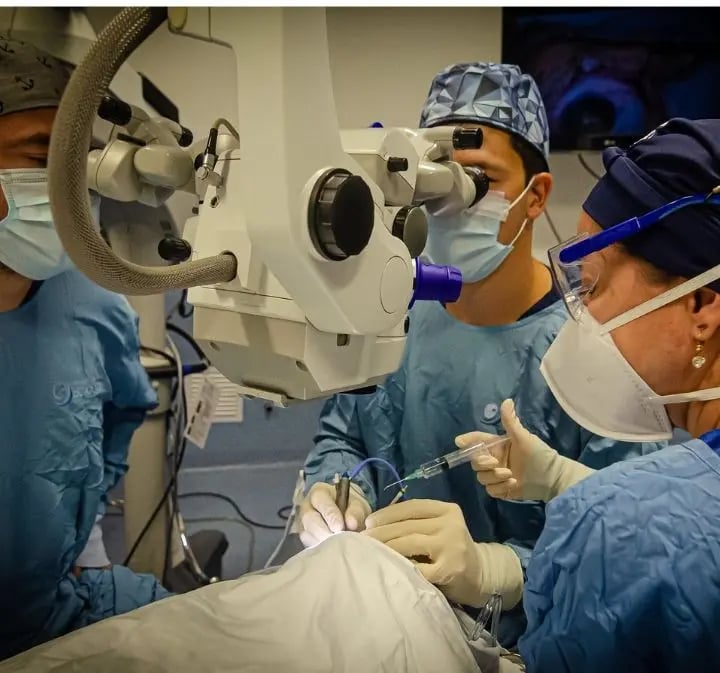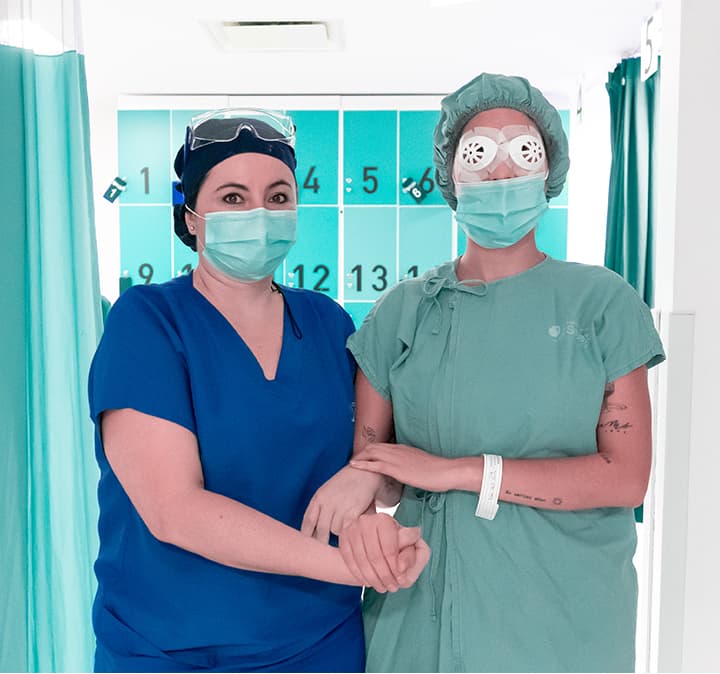Before the surgery
During consultation with the ophthalmologist, you should specify the medications you take regularly, and if you suffer from any disease or allergy.
Take the medications prescribed by your doctor regularly. Suspend the ones indicated by the anesthesiologist or the ophthalmologist.
Do not take any medications which have not been prescribed by your doctor, or your
ophthalmologist, as this could interfere with your surgery.
If, for any reason, you must cancel the surgery, please, let us know by phone, to
reschedule the procedure. You can communicate via WhatsApp with number +57 301 530 8977.
The day of your surgery
Follow all the fasting instructions given the day your surgery was scheduled, or during pre-anesthetic assessment. Do not take any liquor in the previous hours.
Do your personal care regularly. Ideally, try to wash your head the day before the surgery,
so that you don’t have to do it the same day of the intervention or the day after (shampoo
may irritate your eyes).
Wash your face and neck with Isodine foam. For some specific procedures, a solution for your eyelid hygiene will be prescribed. The proper way to apply them will be found in the
prescription.
Come at the scheduled time, together with a responsible adult, with comfortable clothes,
no make-up, no nail polish in neither hands or feet. Please, do not wear jewels or other
valuable objects.
If you are a contact lens user, please remove them at home.
Hand in your dental protheses to your accompaniment.
Bring the medications you are currently taking with you.
Remember to bring your personal documents, and those you must submit according to the requirements of your entity.
Don’t forget some insurance policies require either copayments or bonuses before the
procedure (such information will be confirmed during the process of scheduling your surgery).
Should you feel any discomfort (fever, cough, flu, allergy) before the surgery, report it
upon arrival to the clinic.
If your surgery must be cancelled for any reason, please do it by phone, so that the date of your procedure may be rescheduled.
Don’t keep any doubts to yourself: if there is anything you haven’t asked, check with the
treating medical team.
Important information for after the surgery
 After the surgery
After the surgery
Necessary care after ophthalmic surgeries. Download here




